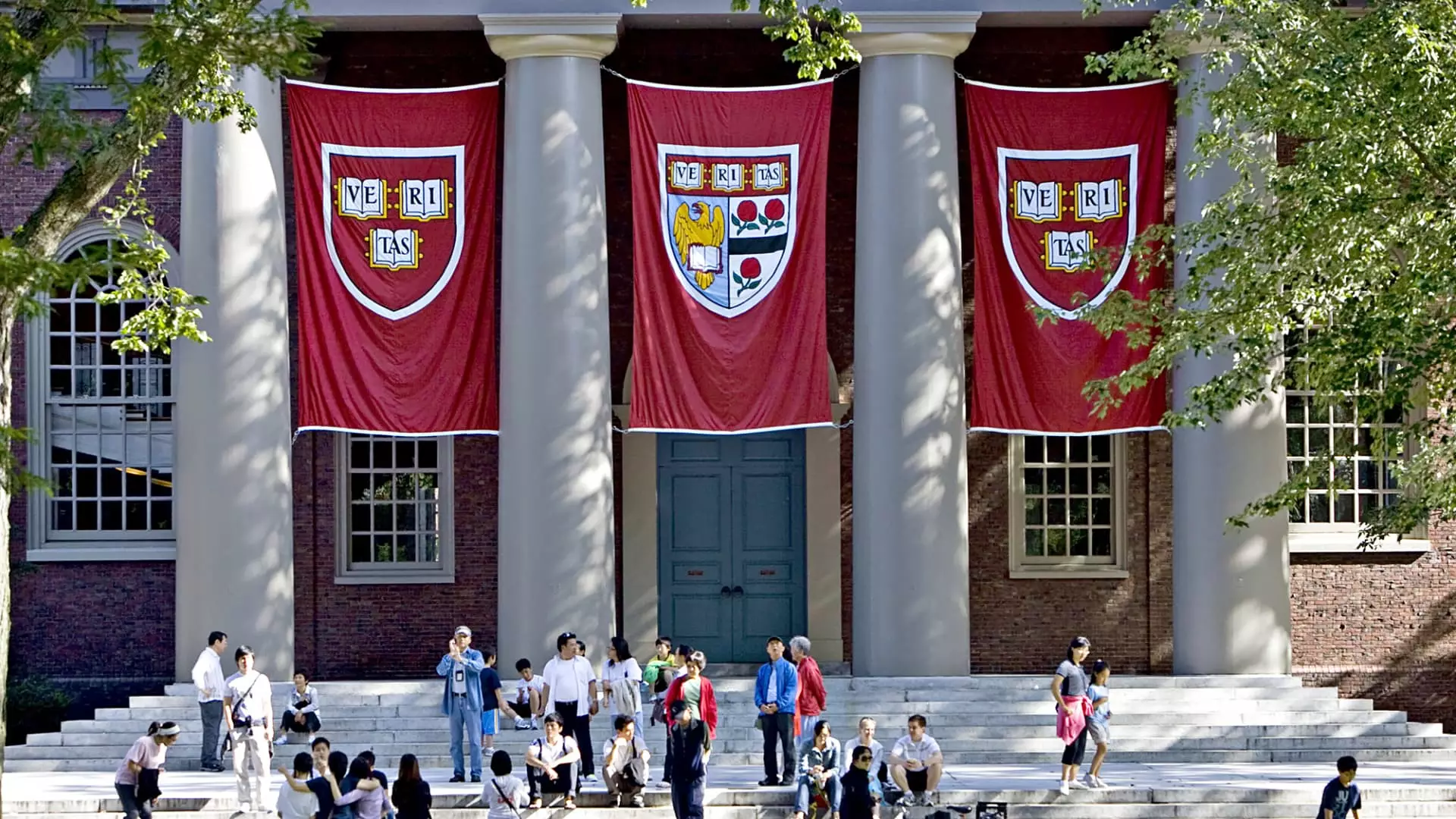Harvard University’s recent announcement regarding free tuition for undergraduates from families earning $200,000 or less is, without a doubt, a remarkable turning point in the educational landscape. This decision isn’t just a stroke of generosity; it represents a critical shift toward making elite education accessible to a broader range of students. As other Ivy League schools have followed suit with similar initiatives, we must interrogate whether this trend signifies genuine progress or merely a polished façade to mask systemic inequalities.
Harvard’s new policy, coming into effect for the 2025-26 academic year, effectively places it in the frontlines of a competitive education sector that is increasingly aware of the financial burdens placed on students and families. By elevating the income threshold for free tuition, Harvard’s actions may push other institutions to reconsider their financial aid strategies and encourage them to invest in a holistic educational experience that prioritizes affordability. This could foster a more inclusive environment where the next generation of leaders and innovators hail from diverse socioeconomic backgrounds.
The Financial Reality
Before this policy, attending Harvard, with an undergraduate tuition exceeding $56,000 and total costs nearing $83,000, effectively meant choosing between financial ruin and prestigious accolades. The exorbitant cost of education has become a pressing concern; the overwhelming student loan debt crisis looms like a dark cloud over future graduates. However, tuition-free policies do not negate the reality that students still grapple with various costs outside of tuition, such as housing, fees, and textbooks.
The assertion that free tuition alleviates financial stress is thus somewhat superficial. While Harvard’s announcement serves as a commendable commitment to combating educational inequity, it does not sufficiently address the pressing financial fears that add layers of anxiety for students and their families. Therefore, it is crucial for institutions to go beyond scrapping tuition to examine the entirety of the financial burdens associated with obtaining a degree.
Not Just a Dollar Sign
At its core, education is more than just financial transactions; it is about cultivating an environment that values diversity and inclusiveness. Harvard’s decision, while certainly a strong signal in the context of economic divides, does not automatically translate into equitable educational experiences for all students. For education to be genuinely transformative, institutions must also commit to fostering an inclusive culture where diverse perspectives are embraced and amplified within their student bodies.
The “affordability arms race,” as one commentator aptly phrased it, hardly constitutes a panacea for the deeper systemic issues present in higher education. It is commendable that Ivy Plus institutions are competing to attract students with monetary incentives, but more profound changes are essential to dismantle the systemic barriers that persist within the education system.
Taking Financial Risks
Critics of such initiatives might argue that they reflect a detrimental reliance on institutional endowments, potentially creating a ticking time bomb of financial sustainability for elite institutions. Yes, tapping into these endowed funds could undermine financial stability in the long run for esteemed institutions. However, on the flip side, it could also pave the way for bold models of educational funding and renew discussions surrounding wealth distribution in higher education.
Is it necessary for universities to hold large endowments at the expense of potential students’ access to liberty through learning? The debate is polarizing, but it raises pertinent questions about the role that these institutions should play in society. With a greater commitment to financial aid, universities can demonstrate social responsibility and be agents for change, rather than guardians of the status quo.
Ultimately, Harvard’s policy shift reinforces a vital narrative: elite institutions can and should play a role in championing equitable access to education. However, it is essential to ensure that these changes extend beyond mere rhetoric to embrace fundamentally transformative actions that address the broader issues of affordability and accessibility within the higher education framework. While we applaud this step forward, we must also remain wary of the conditions that still exist and the efforts still required to ensure that education serves as a ladder rather than a privilege exclusive to the few.

